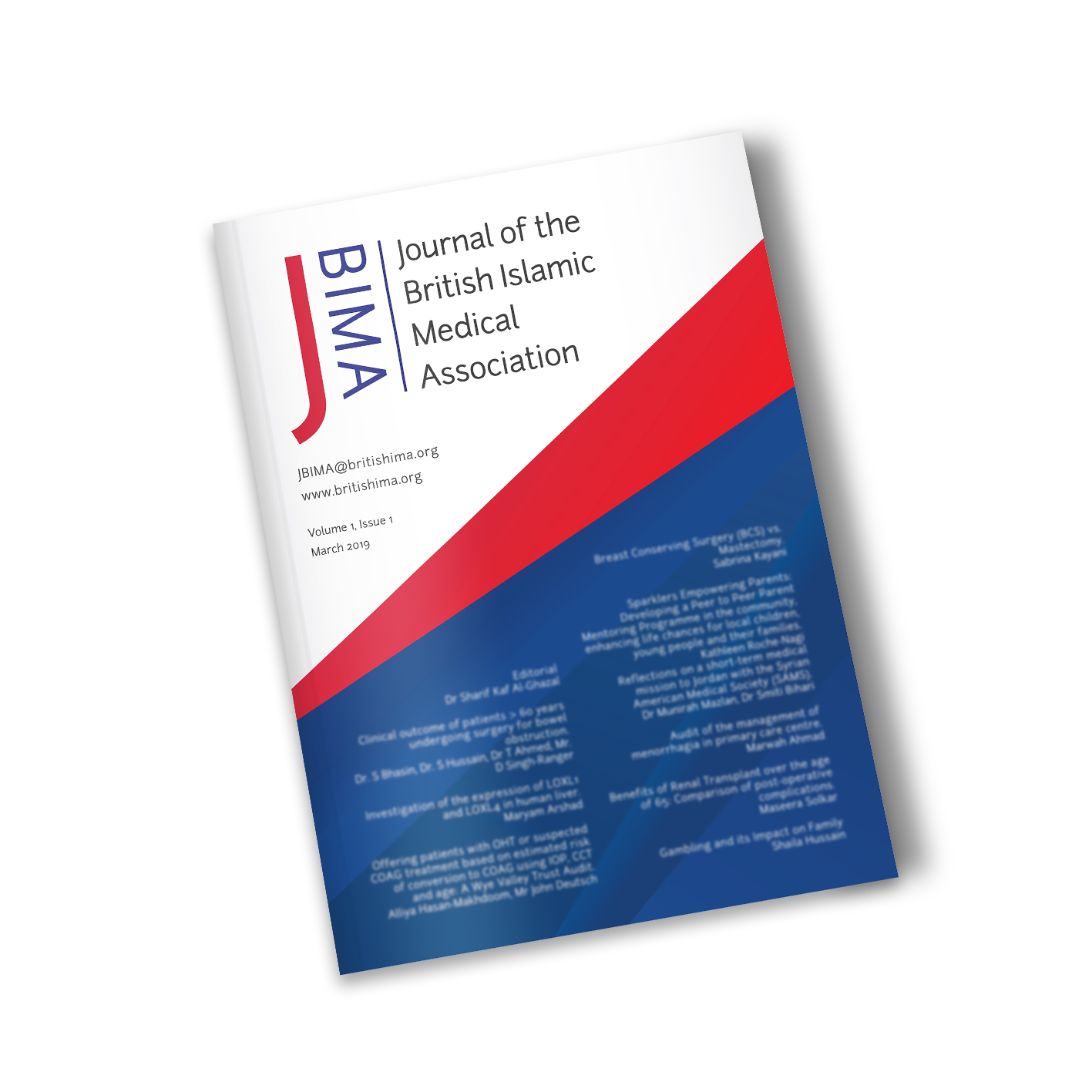
Assalamo Alaikom all,
The first few months of 2025 have been challenging for us as healthcare professionals; whilst 2024 was not easy, it seems that this year is just as difficult. Resilience is the byword, and when thinking about our individual journeys into medicine, it is worth us trying to find those reserves of resilience that have served us so well, and to continue our trust in Allah, our protector.
By the time you’ll be reading this, it is likely that there will be clarity on the direction of the assisted dying bill, which has been delayed to give MPs on all sides more times to consider changes. Huge concerns remain about the bill however, and we at BIMA have not been shy in expressing these concerns. But beyond our stance as Muslim healthcare professionals, others have been upfront with their apprehension over this bill. More recently, more than 100 women from Christian, Muslim,Jewish and Sikh groups have warned in an open letter that the bill has “insufficient safeguards to protect some of the most marginalised in society, particularly women subjected to gender-based violence and abuse by a partner”. Moreover, charities involved in the advocacy of victims of domestic violence has raised further concerns that this bill could put vulnerable women in danger and that there was a “significant risk” that coercion could potentially play a part in some cases of assisted dying. Within the bill, there is provision for doctors to proactively suggest assisted dying to patients that have not even raised it themselves which raises alarm bells about the idea of the NHS becoming a “state death service” as Shabana Mahmood, the Justice Secretary has stated.
The assisted dying bill has arguably become even more susceptible to abuse as the legislation has been weakened rather than strengthened. The judicial safeguard element which was part of the original bill has been removed so instead of judges signing off on assisted deaths, this will be the responsibility of panels with which lack investigatory panels, lack the ability to summon witnesses and can’t hear evidence under oath. There is no obligation on assisted suicide providers to notify families that their relative is about to die which is inhumane, and just as worrying, no routes for relatives to raise concerns about coercion of a vulnerable and unwell family member.
MPs have repeatedly criticised the bill and there is still very little detail on costs of the service as well as any impact assessment. But beyond this, the ethico-legal dimension of assisted dying shifts the paradigm of what it means to be a doctor. We work to try and make the unwell feel better; to treat the root cause of a disease; to ensure that those who visit the hospital leave it in a state physically and mentally better than when they entered. The concept of assisted dying stands against all of this, and even arguments about “dignity in death” don’t stand up to scrutiny. How is it dignified to be made to feel that you should die because you feel like a burden to those around you who you love?
Whilst we think about assisted dying in the UK, we cannot forget those dying in Gaza, who have been facing an ongoing genocide for over 500 days. Complicity in the killings of innocents goes far beyond Israel as this point; the international community must bear significant blame for repeatedly turning a blind eye to recent events. As healthcare professionals, we are especially concerned about reports that paramedics in Gaza – non combatants and humanitarian workers -were shot by the Israeli military with intent to kill according to the Red Crescent. Video forage demonstrated that they were clearly seen in ambulances, but apart from a few simple statements of condemnation, the international community’s response to Israel has been muted. Furthermore, the media have partly to blame as on many occasions, having either ignored the ongoing massacres or presented a skewer narrative.
Muslim countries and the rest of the international community have just been giving lip service to the plight of the people of Gaza. As the massacres continue, the world has become desensitised to the daily horrible images coming out of Gaza every day proving that an immediate ceasefire has to be implemented.
The very recent news from the Supreme Court that the legal definition of a woman is based on biological sex in the Equality Act is has potentially far reaching consequences and is worth monitoring. It will mean that in hospitals and clinical settings, single sex spaces will accommodate only those whose biological sex aligns with said space, and the clarity is welcomed by many. It means that transgender women who hold a gender recognition certificate don’t fit the legal definition of a woman under the Equality Act and means that single sex spaces are protected by the law. There will likely be more discussion in this space as people digest the news and its consequences, but for female patients and health workers, this clarity is a positive step forward. We are publishing in this issue an interesting article written by Dr Saman Khan which is going to touch on this topic.
We ask Allah to guide us and put Baraka in our time. We ask Allah to protect the people of Gaza and grant them strength and resilience.
Wassalam

